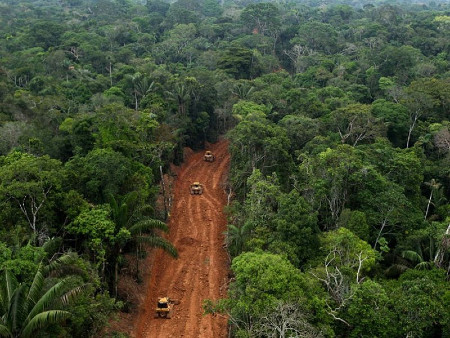These activities are the source of significant contamination, with major adverse effects on the environment and human health for communities living near extraction sites.
The thesis is therefore part of the Expos'UM's interdisciplinary Nexus project, which aims to describe, assess and model the external exposome in these polluted areas, through three PhD projects in sociology, epidemiology and geography.
 © Yasuni-ITT National Park, Ecuador @AmazonWatch
© Yasuni-ITT National Park, Ecuador @AmazonWatch
The thesis will focus on a precise understanding of the Ecuadorian context, in order to identify, in the history and sociology of the territory concerned, the factors that shape local "risk cultures". In addition, the social practices that constitute vectors of exposure will be precisely identified, to anchor the exposome analysis in a territory. Practices will also be seen as indicators of constraints and easements, or even ways for adaptation, on the basis of which risk management can be adjusted. The idea is to reconnect perceptions and metrological knowledge in order to integrate sensitive experiences into assessment, monitoring and decision-making - as far as possible. This requires in-depth qualitative surveys to understand how people "live" with nuisances and pollution in water, air and soil, according to circulating knowledge and controversies, modify (or not) their habits as a precautionary measure, and engage (or not) in collective action - in relation to their feelings about health and environmental quality.
The aim of this global project is therefore to assess the exposure of individuals and territories, in order to improve knowledge of the external exposome. The results should provide useful information for stakeholders, as they could contribute to the identification of specific risk areas and thus provide knowledge linked to issues of spatial inequalities in health.
Key words: External exposome, socio-ecosystem, risk perception, Amazonia, Ecuador, extractive activities






